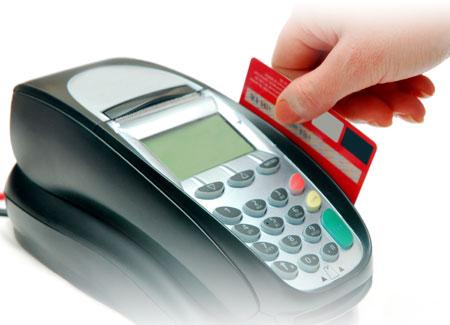|
|
|
|
CHAPTER 4: The Importance of Your First High-Risk Merchant Account
The thing is that despite the issues with the paperwork, I was able to get a solid acquiring bank to process my merchant’s volume within a week of initiating the application process, which is not bad at all. I have been doing business with the acquirer in question for some time and have been enjoying it. However, the merchant didn’t like it — friends of his had done business in the past with acquirers in the same part of the world as mine and hadn’t liked the experience, I was informed. So he turned down my proposal — a very good one, I might add, which he is unlikely to be ever offered again — and we moved on. But this is where the troubles began and led me to think about the importance of the first high-risk merchant account approval. I’m sure that my merchant will think very, very carefully, and then think some more, before turning down a proposal in such a cavalier fashion. And if you operate a high-risk business, so should you.
The Importance of Being First
So what is it that makes the first application review so different from all subsequent ones? Well, I had never given much thought to the subject before this particular merchant came along, but had done much of it since and here is what I think makes the first approval hugely important. The very first thing you need to understand is that all acquirers like fresh application packages. See, in our industry, where most merchants we do business with are extremely hard to place, application packages tend to make the rounds from one acquirer to another time and time again, sent over to them by the UniBuls of the world. Naturally, with each subsequent round, the chances of approval diminish progressively — if the merchant looked good, someone would have already signed them up, wouldn’t they? But more on that in a second.
So it’s extremely important that, when an application package is first put together, all the Ts are crossed and the Is dotted: the applications are fully filled out, signed and initialed; the previous processing statements are obtained; the bank letters and statements are collected, the business plan and the owner’s passport and resume are supplied, as well as the financial statements for the past two years; if the merchant’s previous merchant account had been terminated, a detailed explanation as per the reasons is obligatory; if the previous merchant account is still active, an explanation as per why a new one is needed must be provided. Each new application is unique, so there are always additional documents that are needed, but the above items constitute the bare minimum. The point is that, when the acquirer we’ve selected for the package at hand takes its first look at the paperwork, they should be immediately convinced that they are dealing with a solid, dependable merchant. Yes, the merchant does operate in a high-risk industry, but is very experienced and resourceful enough to be able to manage the risk. If that is the case, the approval is easily and quickly issued and the terms are as favorable as one could hope for. And yet, should you jump on the first opportunity? If you got one merchant account approval so easily, surely you’d be able to get a second and third one just as easily, right? Well, the answer is “no” and I’ve already touched on the reasons, but let me elaborate.
Why Is the Second Approval Different?
So you’ve now turned down your first high-risk merchant account proposal and have instructed your processor to come up with another, for reasons of your own. Well, your processor grudgingly expresses its respect for your decision, dutifully follows up on your request and contacts the next acquirer on its list. As I’ve explained in previous posts, we can’t just contact all of our acquirers at once, because they tend to check up on your business at the same places as everyone else and creating that much traffic tends to indicate, at least in the acquirers’ eyes, desperation on the merchant’s part, which immediately raises suspicions: why is this merchant having so much trouble getting a merchant account if his paperwork looks so good? However, the trouble is that at this stage traffic has already been created.
See, I am yet to meet a merchant which is content with placing its merchant account hopes in the hands of a single processor. After all, the merchant wants to see what the market has to offer and common sense tells him that doing some comparison shopping is the way to go about it. That is true, but there is a limit on how much comparison shopping one can do, before the strategy backfires. As with every other industry, there is a finite number of high-quality high-risk processors and acquirers one can contact and the list is quickly exhausted. From this point on, the applicant’s paperwork goes around the same people over and over again and questions begin to mount. At that stage, the applicant is subjected to a much closer scrutiny than ever before and, when that happens, damaging things inevitably begin to come out — there is not a single high-risk business that I’ve come across which has had absolutely nothing to hide. And whereas such things would have had a chance of passing under the underwriter’s radar when the package was still fresh, that chance no longer exists when the merchant is examined with a more suspicious eye. The applicant’s hope now is no longer getting the best terms available, but getting an account on any terms. You don’t want to be in such a position.
The Takeaway
Nothing of what I’ve just written should be taken to mean that you should jump on the first merchant account opportunity that comes your way, irrespective of the terms. On the contrary, the fact that you operate a high-risk business doesn’t mean that you can’t get a good processing rate, payout terms, low reserve requirement or none at all, etc. You deserve the best terms available and should fight for them. However, you should also be mindful that your risk classification places you into a category which limits your options of high-quality service providers. When you receive a proposal, consider it carefully, before responding to your processor and when you do, but are not quite happy with it, don’t reject it outright, but talk it over. If you can’t quite get the terms you hoped for, still don’t reject the proposal, but ask for time to consider it — typically, your processor would be willing to give you a week, but don’t count on the proposal still being available after that! In the interim, your other processors should have got back to you and you might have another proposal or two to evaluate. In all likelihood, these first proposals would be the best ones, perhaps the only ones, you would get, so choose carefully.
|
|
|
















